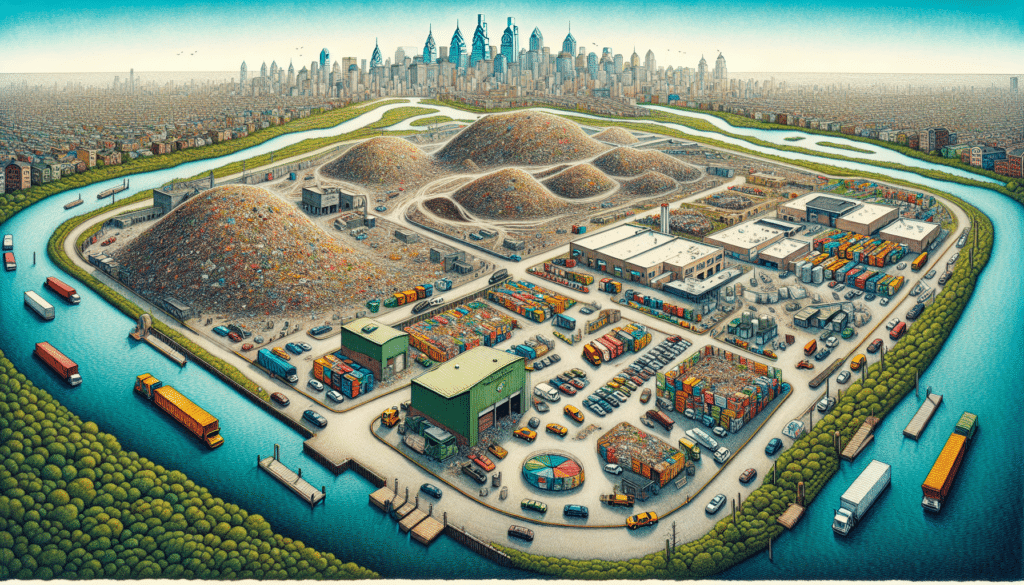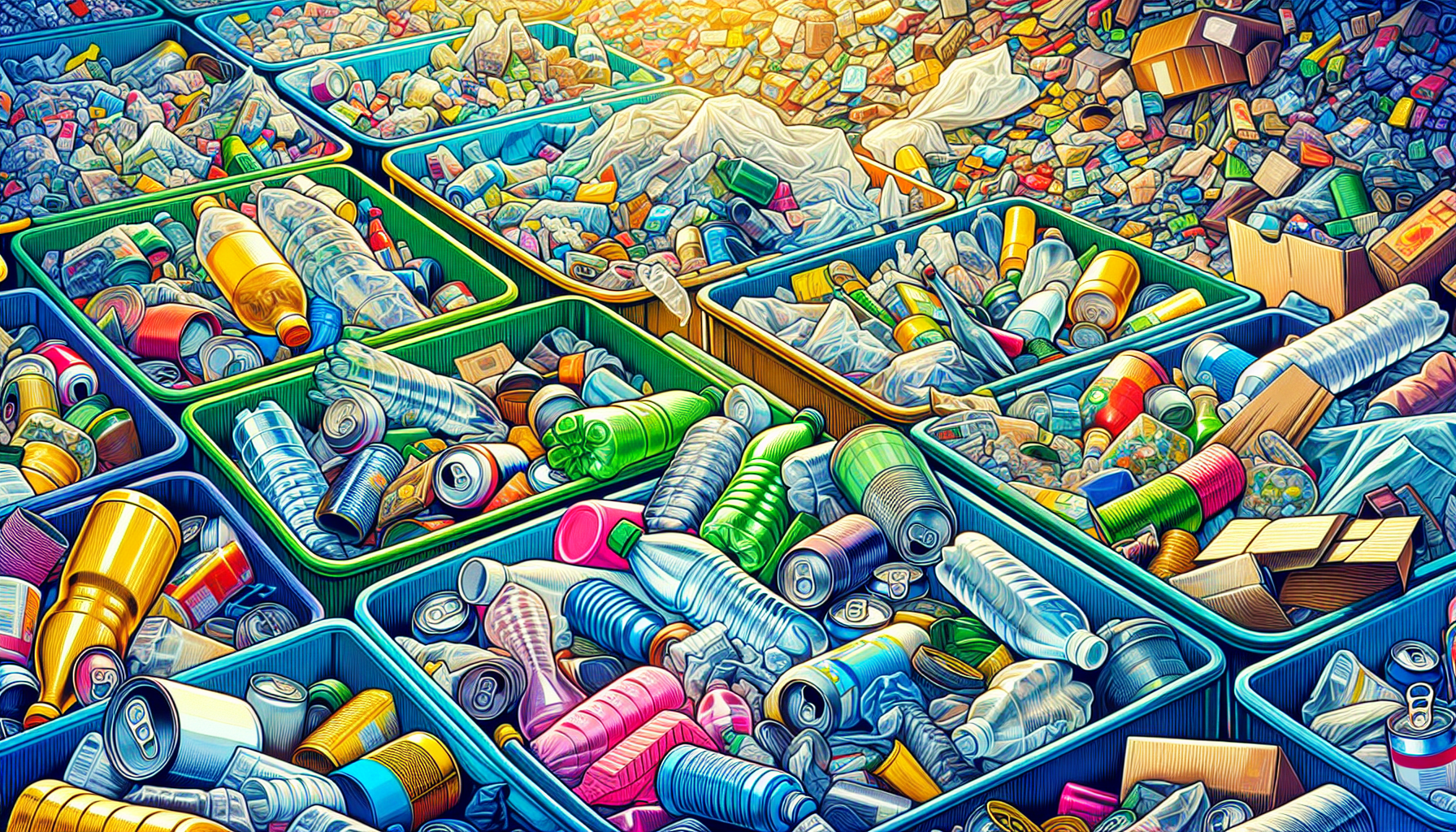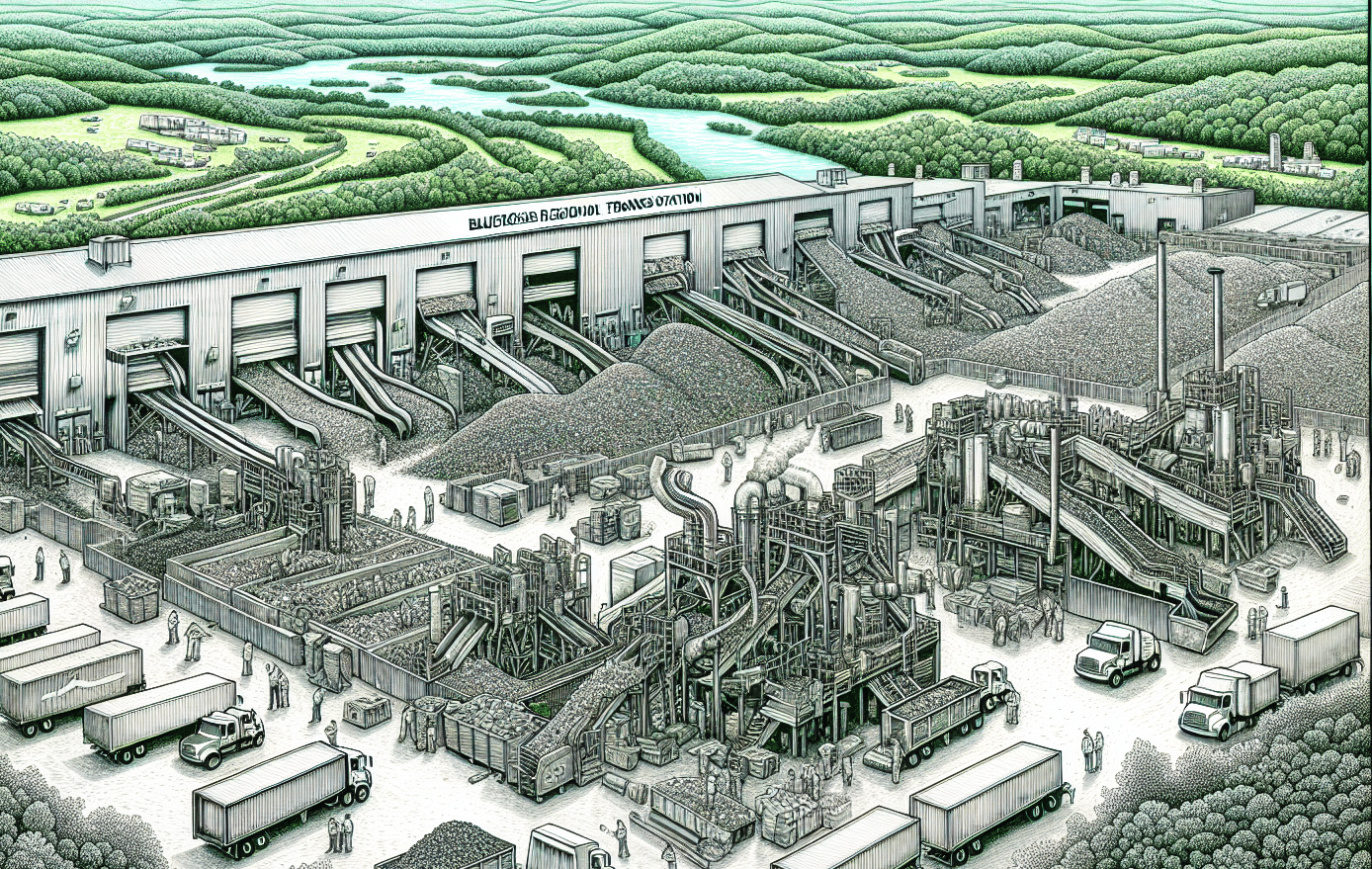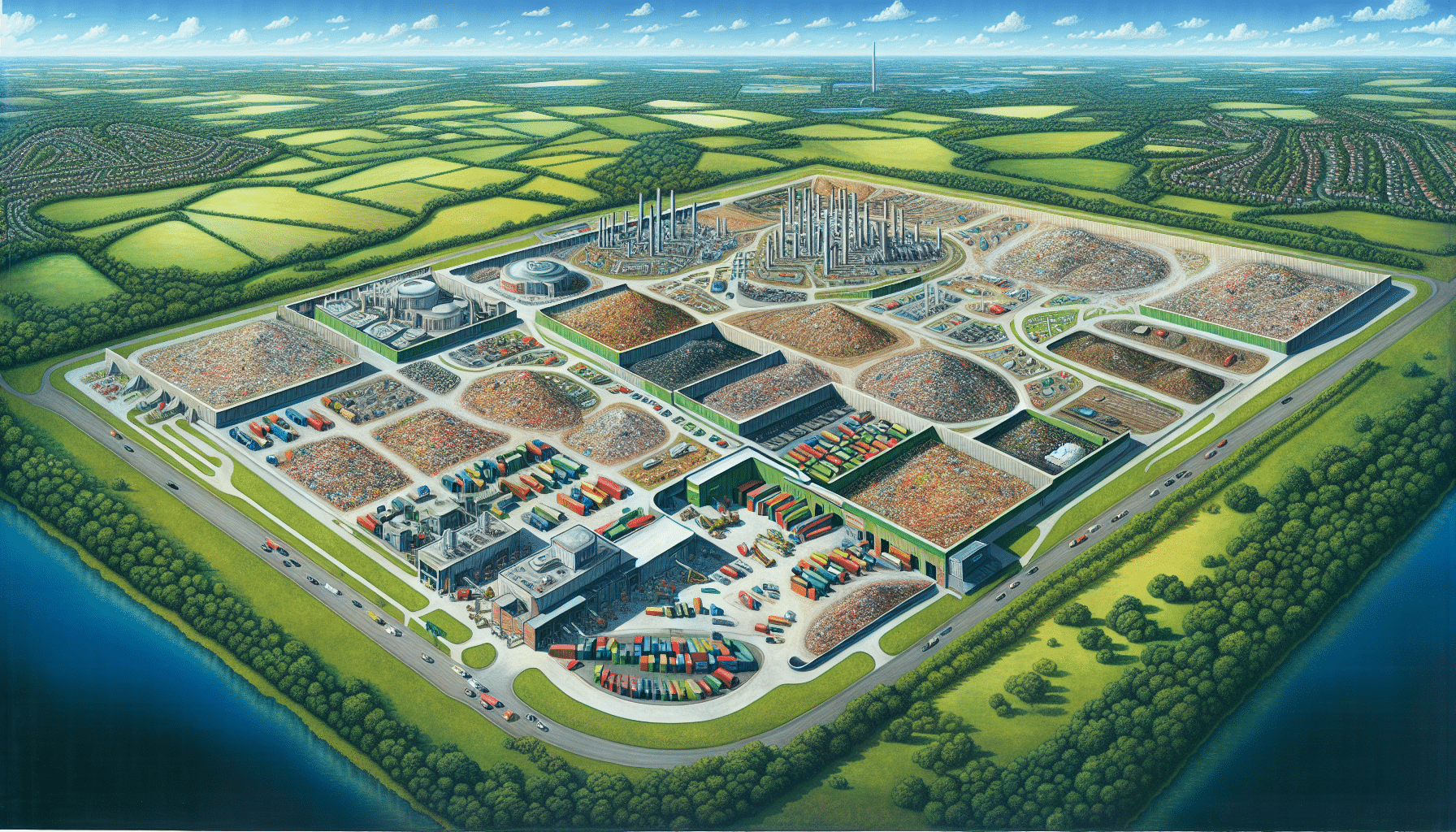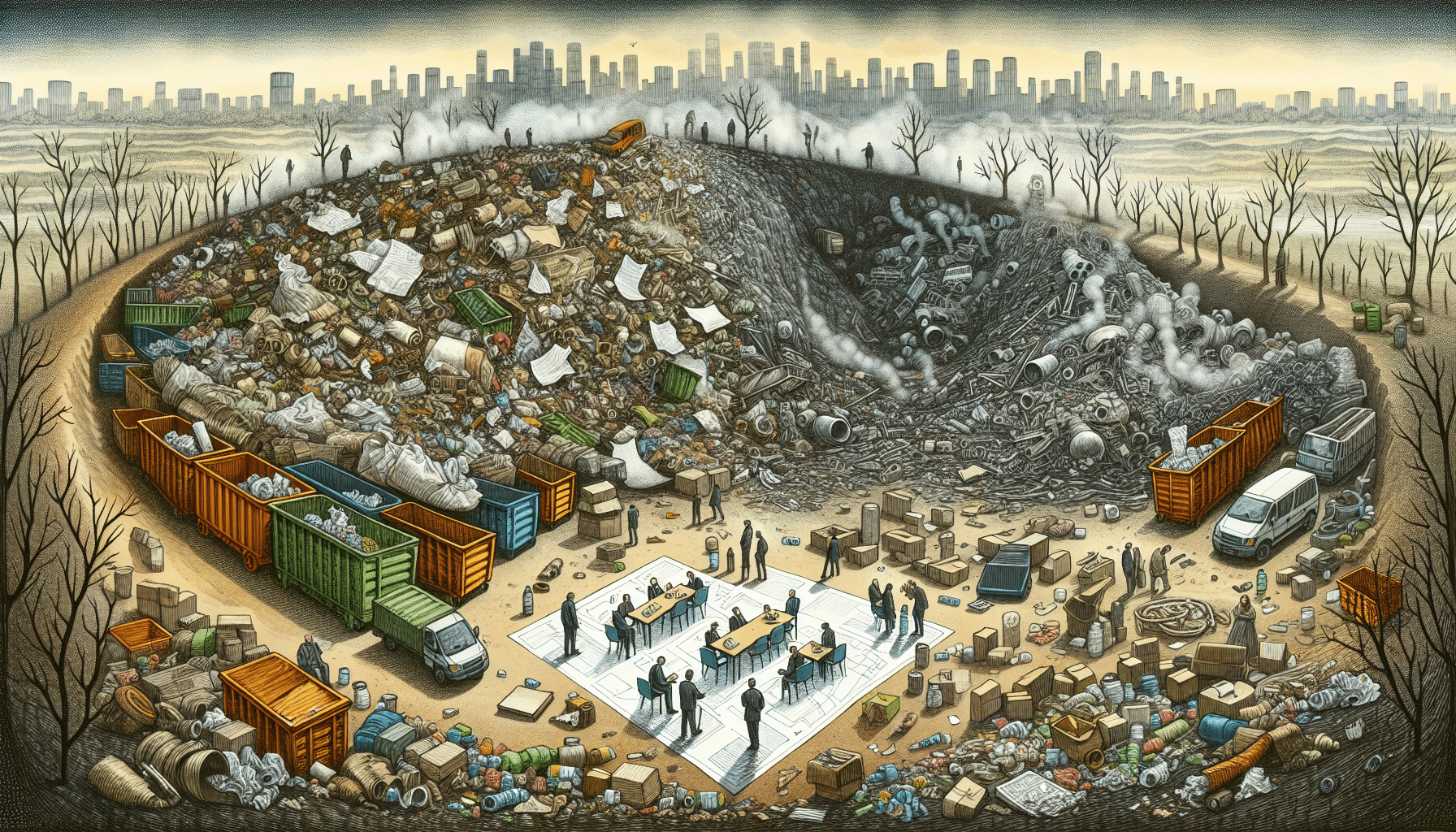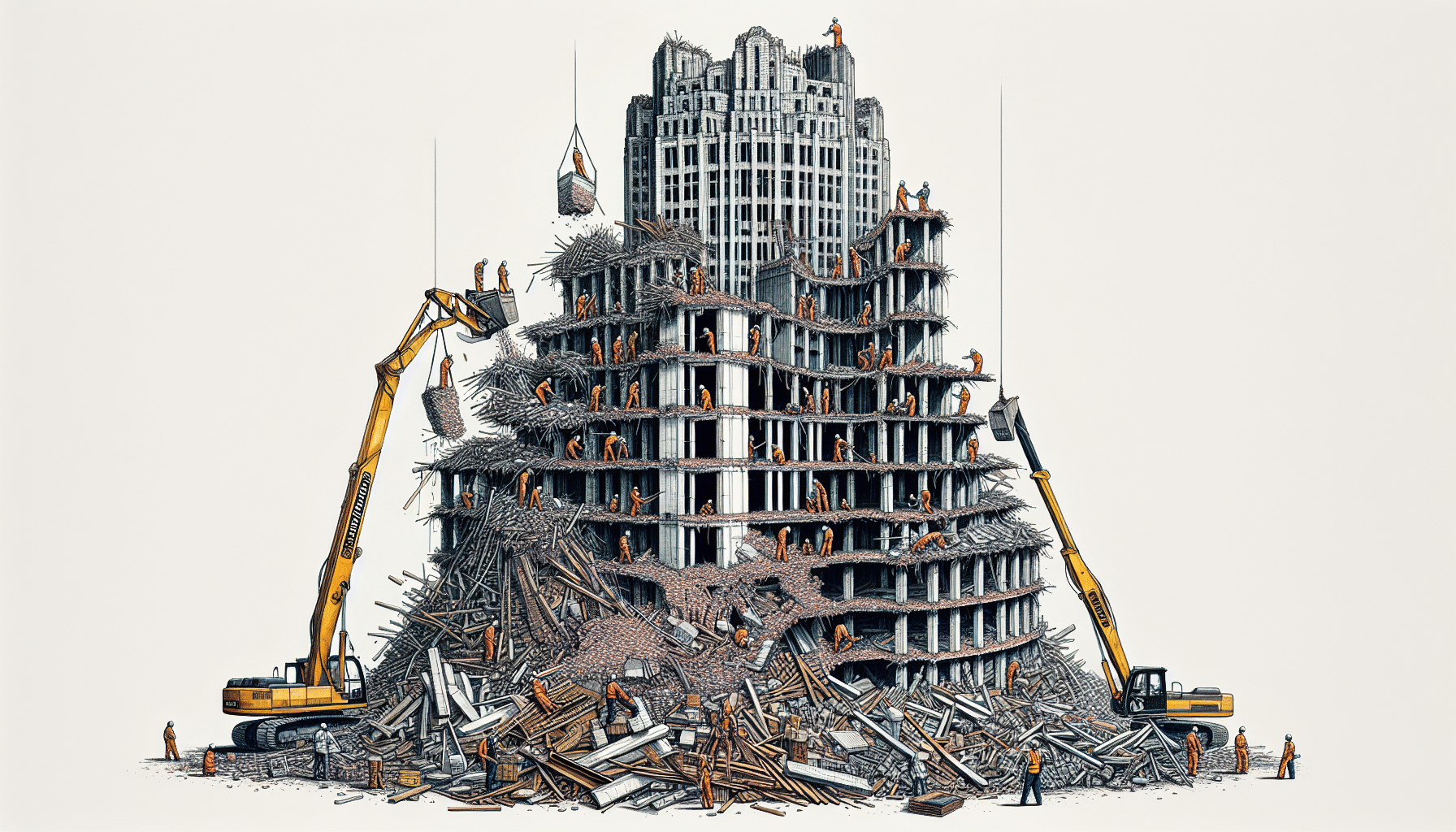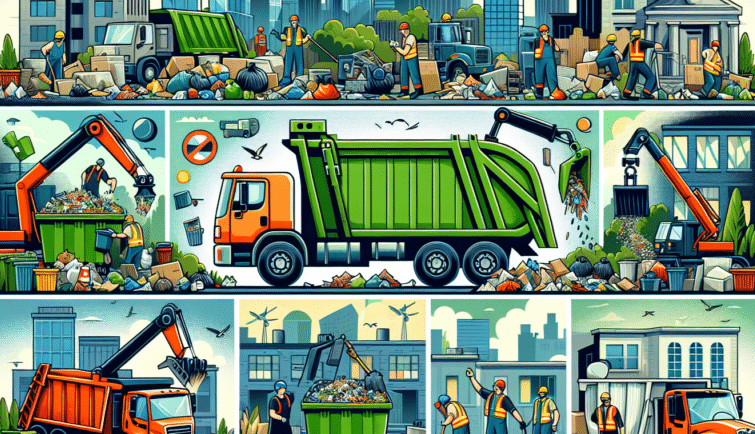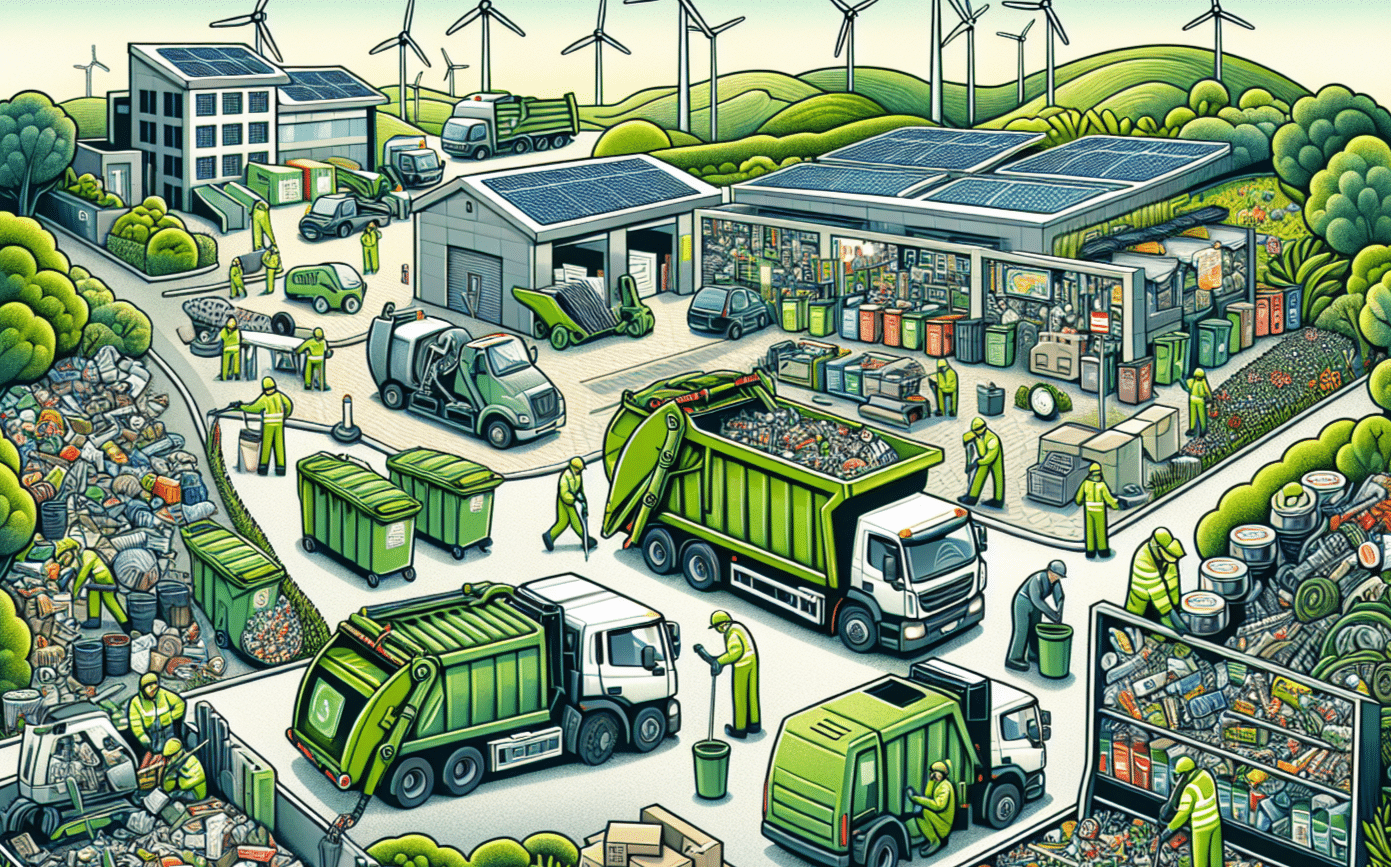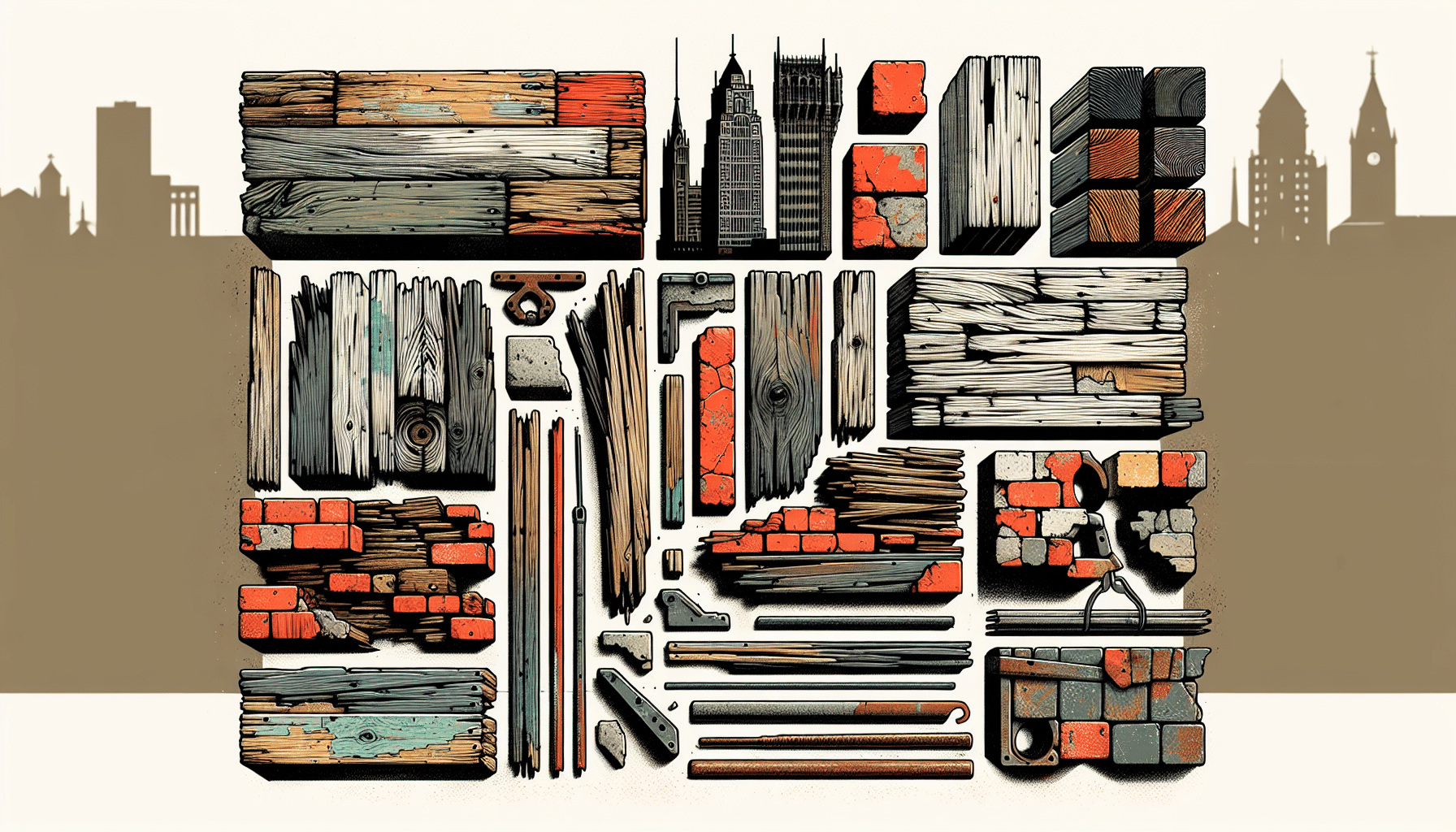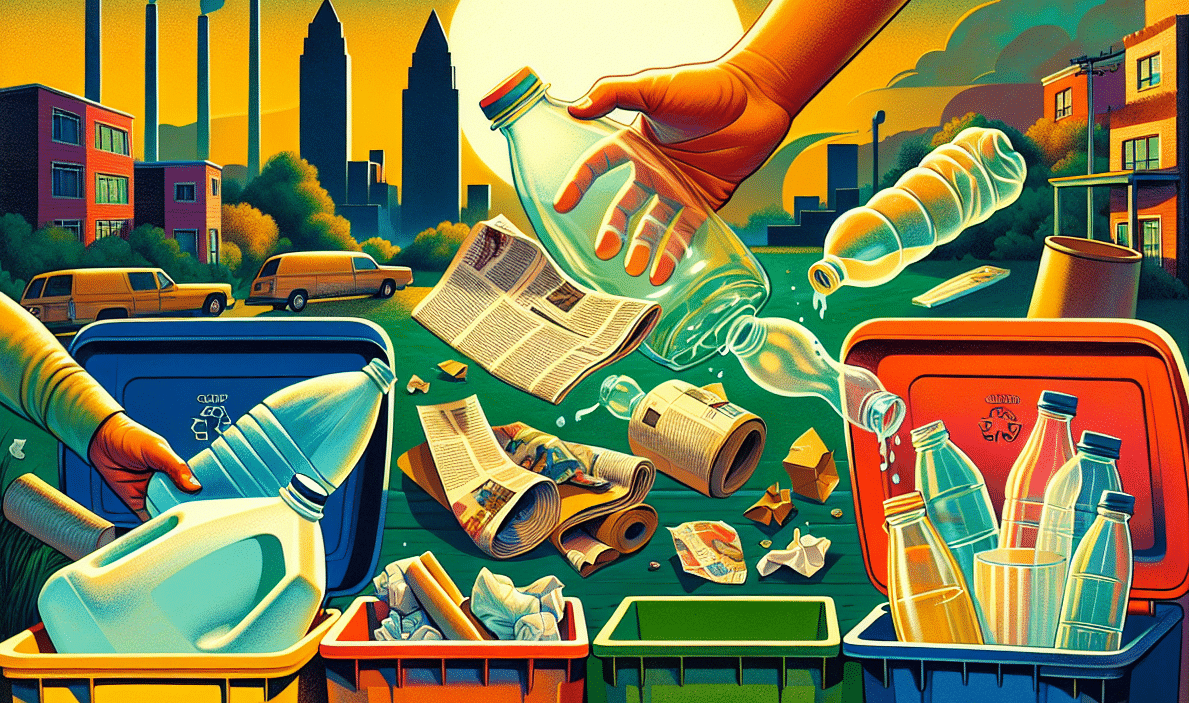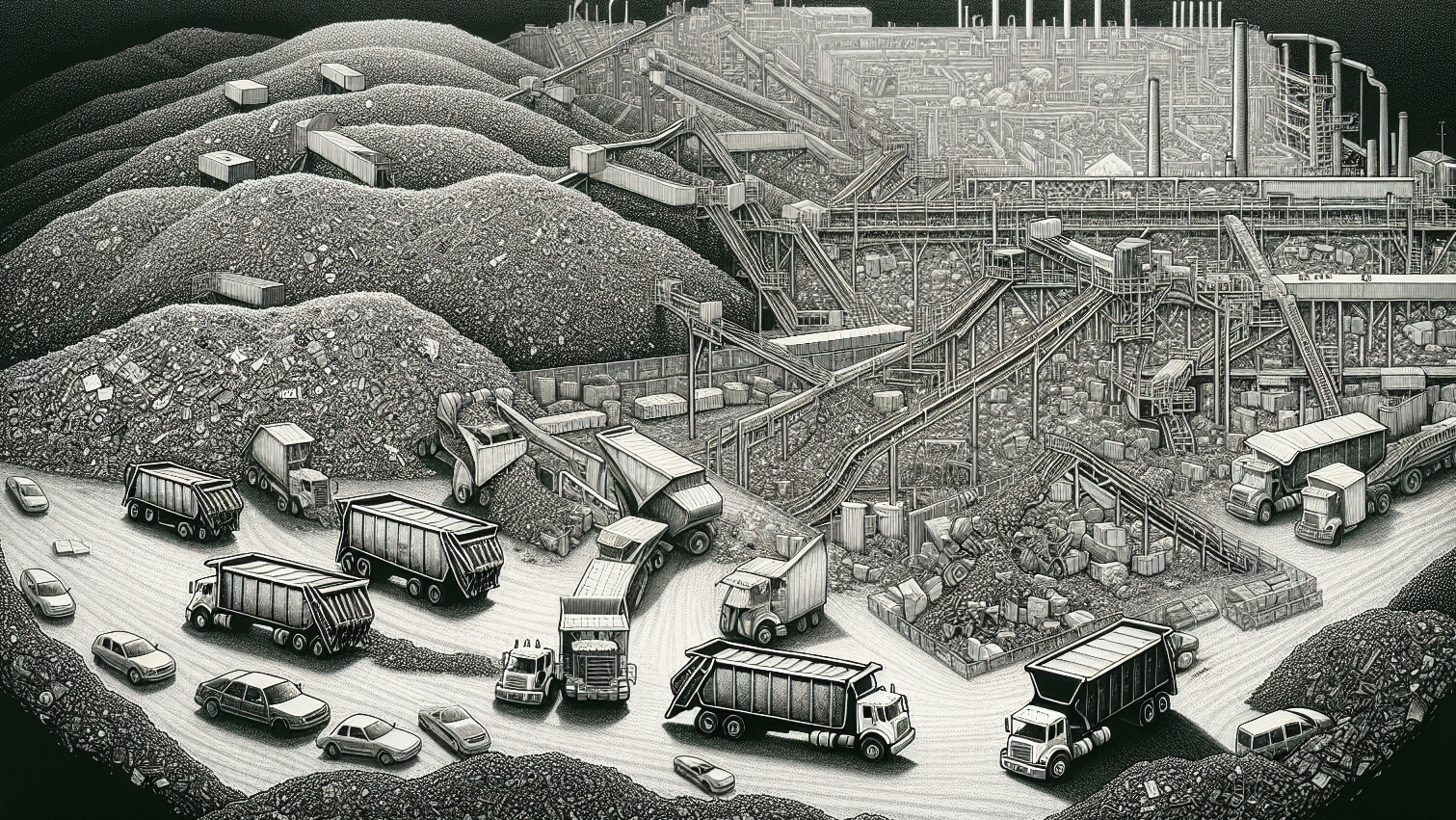Looking for landfills in Philadelphia, PA? This guide lays out where to find them, what they accept, and their operating guidelines. Quickly locate facilities near you, understand applicable fees, and learn which materials are permitted for disposal. Whether for personal use or business purposes, this article covers all of the essential information on Philadelphia’s landfill services.
Key Takeaways
- Philly’s waste management system is a blend of convenience with six sanitation centers for locals, plus several specialized facilities for construction debris and designated sites for concrete and clean fill disposal.
- Landfills around the city are key to handling both daily waste and specialized materials, and abide by strict rules and fees, including covering loads to avoid extra charges.
- Environmental protection is core to Philadelphia’s waste strategy, with strict compliance for landfills, hazardous waste collection events, and waste-to-energy initiatives to handle recyclables and reduce landfill use.
Philadelphia’s Waste Disposal Landscape
In the Philadelphia area, waste disposal is a well-oiled machine, with a network of landfill facilities that stand testament to the city’s waste management prowess. The city’s evolution in refuse disposal, transitioning from earlier, less regulated methods to modern, sanitary landfills, mirrors the broader shift in environmental consciousness that has swept across the greater Philadelphia region. Residents enjoy the convenience of six strategically placed sanitation centers throughout the city and surrounding area, designed for drop-off of oversized trash, yard waste, and recyclables. With a requirement to show proof of residency and adhere to vehicle weight limits, these centers embody the city’s commitment to organized and responsible waste disposal.
Construction and Demolition Debris
When the skyline changes, construction debris inevitably follows. Facilities like BRADS Landfill are specifically designed to accommodate construction demolition and debris materials, including special wastes with prior approval. These landfills play a vital role in managing construction debris, preventing materials from new developments and renovations from overwhelming the city’s waste ecosystem.
There are also concrete dumps in the Philadelphia area, where projects can bring the remnants of old foundations and demolished sidewalks. These specialized sites handle concrete waste exclusively, showcasing the city’s nuanced approach to handling different types of construction debris.
Residential Waste Disposal
For average Philadelphians, the six sanitation convenience centers simplify household waste management. These facilities accommodate a variety of residential waste, such as household trash, which must be neatly contained or bagged. The use of these centers requires proof of Philadelphia residency upon drop-off. In addition, the vehicle used to transport the waste must weigh less than 6,000 pounds with the added material to be accepted. These requirements ensure that the convenience centers are reserved for the use of Philadelphia residents, keeping the waste management process efficient and localized. These centers are a testament to the city’s efforts to cater to the disposal needs of its residents while maintaining environmental integrity.
Landfill Locations and Services
Beyond the city’s borders, there are three permitted landfill locations in the neighboring counties of Chester, Delaware, and Bucks. These locations are part of the 44 permitted landfills throughout Pennsylvania. These sites are versatile, accepting a wide range of materials such as clean soil, construction debris, and non-hazardous commercial waste.
However, waste disposal at these landfills have some stipulations for their use. Here are some important things to keep in mind:
- Fees and tipping charges.While some facilities may bundle these fees with rental prices, others prefer separate billing.
- Credit cards are the encouraged currency at these sites, ensuring a smooth transaction for each drop-off.
- Cover and secure your loads. Failure to do so could double your disposal expenses.
West Grove Landfill
Among the region’s waste management linchpins is the West Grove Landfill. Since its establishment in 1986, the landfill has been serving 24 boroughs and townships in southern Chester County, making it a crucial asset for the area’s disposal needs. If you ever need to navigate your way to West Grove or have any inquiries, reaching out is as simple as a phone call or an email.
Clean Fill Disposal Sites
When it comes to disposing of materials like uncontaminated soil, Philadelphia’s clean fill disposal sites offer a straightforward and environmentally sound solution. These sites are tailored for inert materials that pose no risk of contamination, ensuring that residents can confidently dispose of their clean fill materials, including dirt and soil. While specific locations and guidelines are not detailed here, it’s a given that materials must be free from contaminants, ensuring that the sites maintain their “clean” status and continue to protect the natural surroundings.
Environmental Protection and Compliance
Environmental stewardship is at the heart of Philadelphia’s landfill operations, with a relentless focus on safeguarding both people and the planet. Each landfill in Philadelphia adheres to stringent environmental protection standards, ensuring that waste management practices comply with regulations designed to prevent harm to the local communities and ecosystems. This dedication to compliance guarantees a minimal environmental footprint as the city continually grows and evolves. It’s a delicate balance between progress and preservation, but it’s one that Philadelphia navigates with care and precision, keeping the well-being of future generations firmly in mind.
Hazardous Waste Management
For hazardous waste, residents of the Greater Philadelphia five-county region can take advantage of hazardous waste collection events. Philadelphia businesses are encouraged to secure private disposal services to ensure the safe handling of their dangerous materials.
When it comes to transporting hazardous waste, safety is paramount. Here are some guidelines to follow:
- Materials must be kept in their original containers.
- Lids should be securely fastened.
- Materials should be placed carefully in a vehicle for transport to the collection sites.
These seasonal collection events are a significant part of the city’s waste management strategy, facilitating the proper disposal and recycling of hazardous items such as chemicals, paints, and batteries. Landfills, too, have their part to play, with special waste—including asbestos and contaminated soil—requiring advanced notice and careful documentation for disposal. It’s all part of Philadelphia’s comprehensive plan to handle waste responsibly, protecting the safety and environmental integrity of the city and its inhabitants.
Recycling Programs and Initiatives
In Philadelphia, recycling is not merely recommended—it’s mandatory. Fines are in place to nudge residents toward compliance, ensuring that the city’s ambitious recycling program, which accepts a wide array of materials, continues to reduce litter and conserve precious resources. Despite its success, the program faces challenges, notably the contamination that occurs when trash is improperly disposed of in recycling bins—a problem that can damage equipment and pose risks to workers.
To navigate the complexities of the global recycling market, Philadelphia has turned to waste-to-energy plants. At least half of the city’s collected recyclables are incinerated, generating energy while simultaneously reducing the burden on landfills. It’s a prime example of how the city is adapting to the changing landscape of waste management, finding innovative solutions to protect the environment.
Dumpster Rentals and Roll-Off Services
Whether you’re a homeowner tidying up or a business managing post-renovation debris, Philadelphia’s roll-off dumpster services, such as LDR Site Services, are readily available. Roll-off dumpsters come in various sizes to accommodate the diverse waste disposal needs of the city’s residents and professionals. With the ability to deliver containers within a day of an order, these services exemplify the city’s commitment to efficient and accessible waste management.
BRADS Landfill stands out with its suite of waste management services for businesses, including the collection of non-hazardous solid waste, recycling services, and disposal in landfills. It’s a holistic approach that caters to the commercial sector, ensuring that businesses have the support they need to manage their waste responsibly.
Choosing the Right Size Dumpster
Choosing the correct dumpster size requires a keen understanding of your project’s disposal needs, making it more of an art than a science. Whether you’re clearing out a small home or undertaking a large construction project, there’s a dumpster size that fits the bill. For smaller projects, a 10-yard dumpster might suffice, measuring a compact 12 feet long, 8 feet wide, and 4 feet high. On the other end of the spectrum, 40-yard roll-off dumpsters cater to substantial volumes of waste, making them ideal for larger commercial ventures.
The dumpsters offered by LDR Site Services come in various sizes which are measured in cubic yards Here are some common dumpster sizes offered:
- 10-yard container: suitable for small cleanouts or remodeling projects.
- 15-yard container: suitable for small to medium cleanouts or home remodels.
- 20-yard container: ideal for medium-sized renovations or cleanouts.
- 30-yard container: perfect for larger construction projects or major cleanouts.
- 40-yard container: recommended for commercial construction or large-scale cleanouts.
With the right advice and a bit of planning, you can choose a dumpster that ensures your waste is managed efficiently and effectively.
Pricing and Rental Terms
When renting a dumpster in Philadelphia, affordability and transparent pricing are essential. Costs range from about $727 for a 10-yard dumpster to roughly $965 for a 40-yard container, typically presented as a flat rate that includes a standard rental period and a tonnage limit. However, should your project run over time, know that extending your rental is possible, albeit for an additional fee.
The overall prices can also be swayed by factors like the distance from the service provider and current fuel prices, which affect delivery costs. In addition to dumpsters, companies like LDR Site Services also offer compactors and recycling containers, ensuring that your specific waste disposal needs are met with precision and care.
Waste-to-Energy Solutions
Looking towards the future, Philadelphia is increasingly incorporating waste-to-energy solutions into its waste management strategy. These innovative systems convert waste into usable energy, offering a sustainable alternative to traditional landfill methods. Covanta, with several facilities in the region, is a major player in this arena, underscoring the importance of waste-to-energy in the city’s overall approach to waste management. By transforming waste into energy, these plants play a key role in managing the city’s waste while contributing to the production of renewable energy.
The Role of Incinerators
Incinerators, which burn waste including recyclables to generate steam for electricity production, are used as part of Philadelphia’s waste-to-energy process. Covanta’s Chester facility is a testament to this process, processing a staggering amount of the city’s waste each year and supplying the local power grid with the generated electricity. This facility not only handles a significant portion of the city’s waste but does so while adhering to strict environmental compliance measures to control pollution emissions.
Advancements in Waste-to-Energy Technologies
In waste management, technological innovation is a constant process. Advancements like the FastOx Gasifier and methods such as gasification, pyrolysis, and anaerobic digestion are reshaping how Philadelphia deals with waste. These cutting-edge technologies have the potential to drastically reduce the volume of landfill waste, sometimes by as much as 99-100%, while simultaneously increasing the production of clean, renewable energy.
The viability of these technologies hinges on factors such as plant scale, waste input, local disposal costs, and energy prices. However, when the conditions are right, they represent a leap forward in the city’s ability to manage material waste, such as tree branches, in a way that’s both efficient and environmentally responsible.
Special Disposal Needs: Tires, Appliances, and Electronics
Philadelphia’s waste disposal landscape includes not only everyday trash, but also special items that require unique handling, such as automotive tires, large metal household items, and electronics. The sanitation convenience centers are equipped to accept these items, ensuring that they’re disposed of safely and in accordance with environmental regulations. By providing avenues for the proper disposal of these special items, Philadelphia is taking a stand for sustainability and encouraging its residents to do the same.
Tire Recycling and Disposal
Tires pose a disposal challenge due to their bulkiness, durability, and potential to become breeding grounds for pests if not properly discarded. Philadelphia’s Tire Round-up Program is an initiative in Philadelphia that not only disposes of tires but also empowers community groups. By offering a financial incentive of 50 cents per tire, the program encourages local organizations to collect and properly dispose of up to 1,000 tires, turning a potential environmental hazard into an opportunity for community engagement.
The program is selective, capping participation at the first 150 registered groups each year, which may include neighborhood committees and town watch organizations. It’s a targeted approach that ensures resources are channeled effectively and that the tire disposal efforts have a meaningful impact on the city’s neighborhoods. Designated drop-off times further streamline the process, making tire disposal a well-organized affair.
Appliance and Electronics Recycling
In our technology-driven era, electronic waste, or e-waste, is an escalating concern. To help with this, Philadelphia has set into motion programs such as eForce Recycling. Since 2008, eForce Recycling has been ensuring that electronic waste is handled securely and responsibly, compliant with all environmental regulations. This specialized approach to recycling prevents hazardous substances found in electronics from causing harm to the environment and public health.
At the city’s sanitation convenience centers, electronic waste is handled with the utmost care, with strict guidelines in place to ensure that everything from old computers to outdated appliances is recycled properly. It’s a crucial component of the city’s waste management strategy, one that acknowledges the unique challenges posed by modern waste and addresses them with innovative solutions.
Summary
As our journey through Philadelphia’s waste management landscape comes to a close, it’s clear that the city is making strides in addressing its disposal needs. From the day-to-day operations at sanitation convenience centers to the forward-thinking waste-to-energy technologies, Philadelphia sets a standard for urban waste management. The city’s commitment to environmental protection and compliance is evident in every aspect of its strategy, from tire recycling initiatives to advanced recycling programs. By understanding the options and responsibilities associated with waste disposal, Philadelphia residents and businesses alike can contribute to a cleaner, greener city.
Frequently Asked Questions
What types of waste can I dispose of at Philadelphia’s sanitation convenience centers?
You can dispose of oversized trash, yard waste, recycling, and special items like automotive tires, large metal household appliances, and electronics at Philadelphia’s sanitation convenience centers.
Are there any fees associated with using the landfills in the Philadelphia area?
Yes, there are fees associated with using landfills in the Philadelphia area, such as landfill fees and tipping fees that may be bundled with rental prices or billed separately.
How can I safely transport hazardous waste to a collection event in Philadelphia?
To safely transport hazardous waste to a collection event in Philadelphia, keep it in its original sealed containers, place it in a sturdy box, and transport it carefully in your vehicle. This will help ensure the safety of both yourself and the environment.
What is the largest size dumpster available for rent in Philadelphia?
The largest size dumpster available for rent in Philadelphia is the 40-yard roll-off dumpster, which is ideal for large commercial projects with significant volumes of waste.
How does Philadelphia’s waste-to-energy process work?
In Philadelphia, waste-to-energy involves incinerating waste to produce steam, which is then used to generate electricity, reducing landfill usage and contributing to renewable energy production.
